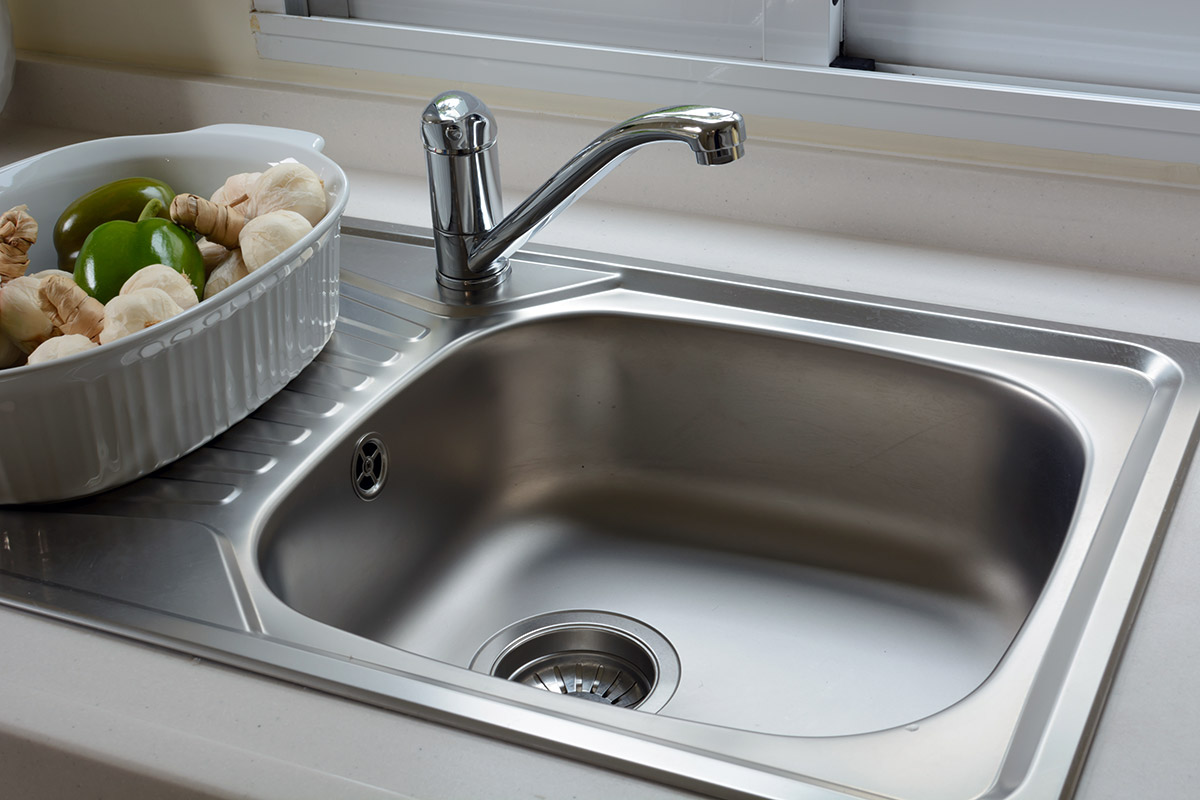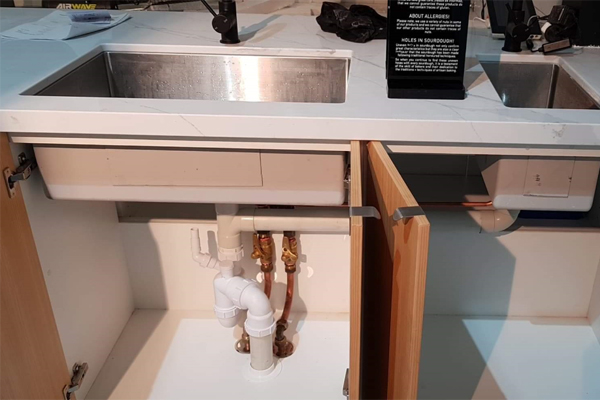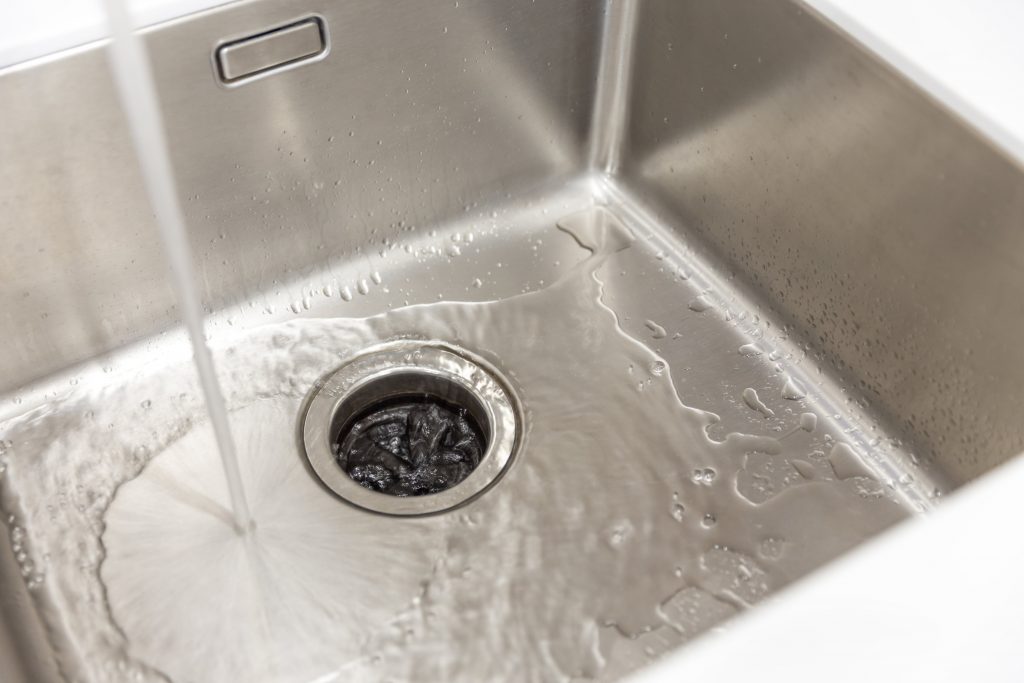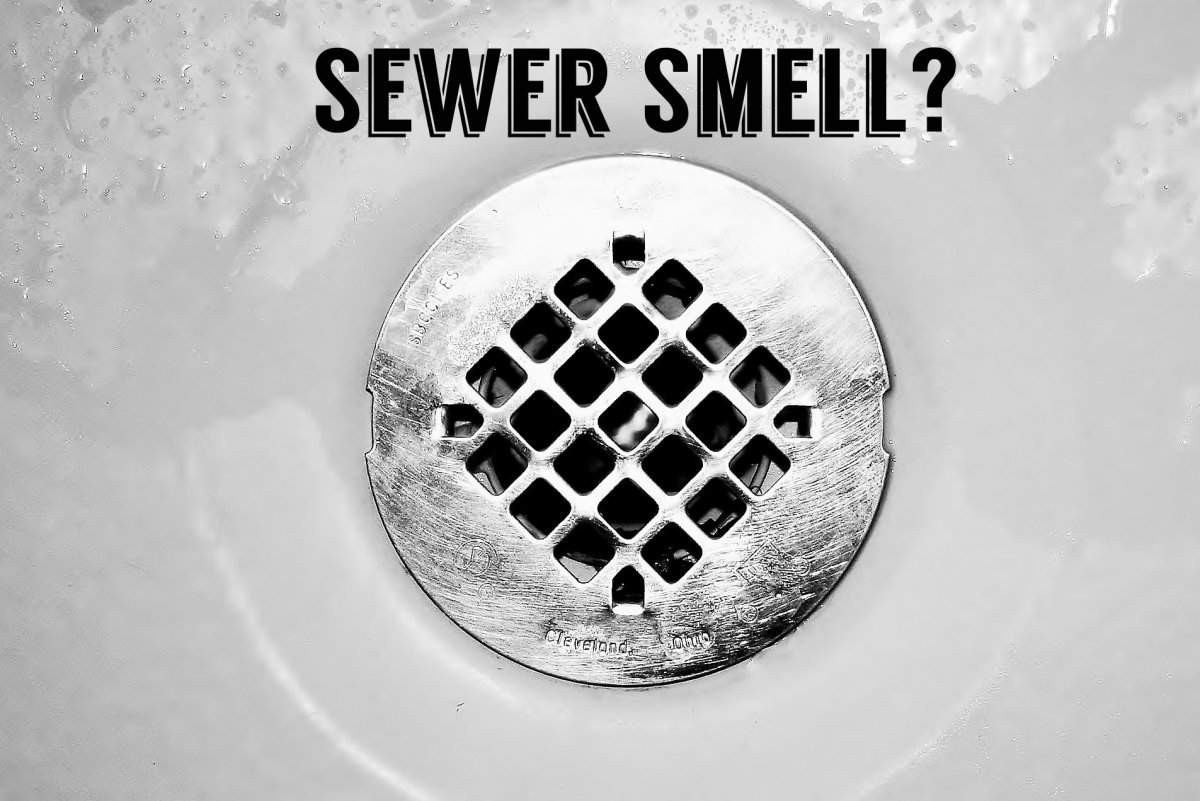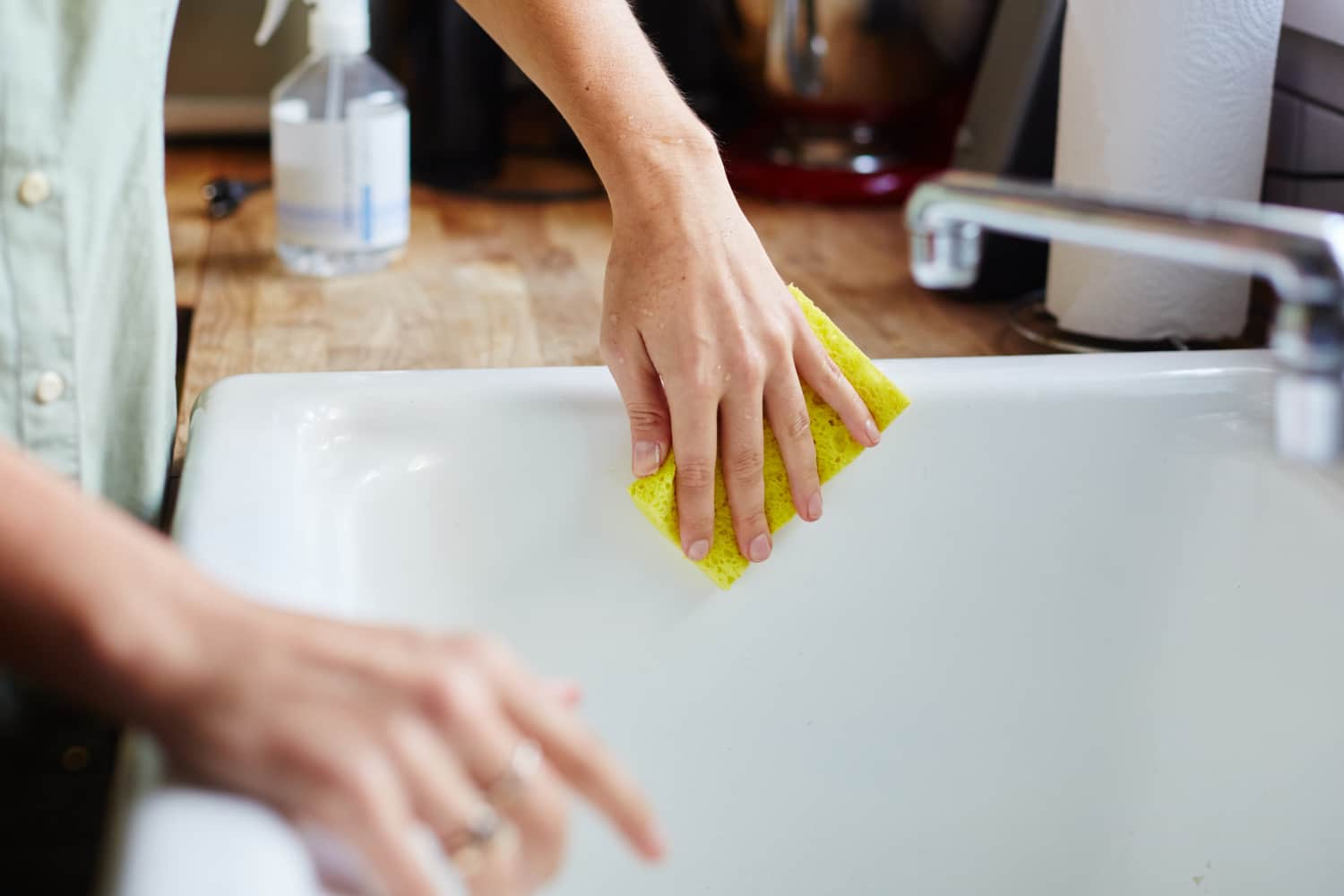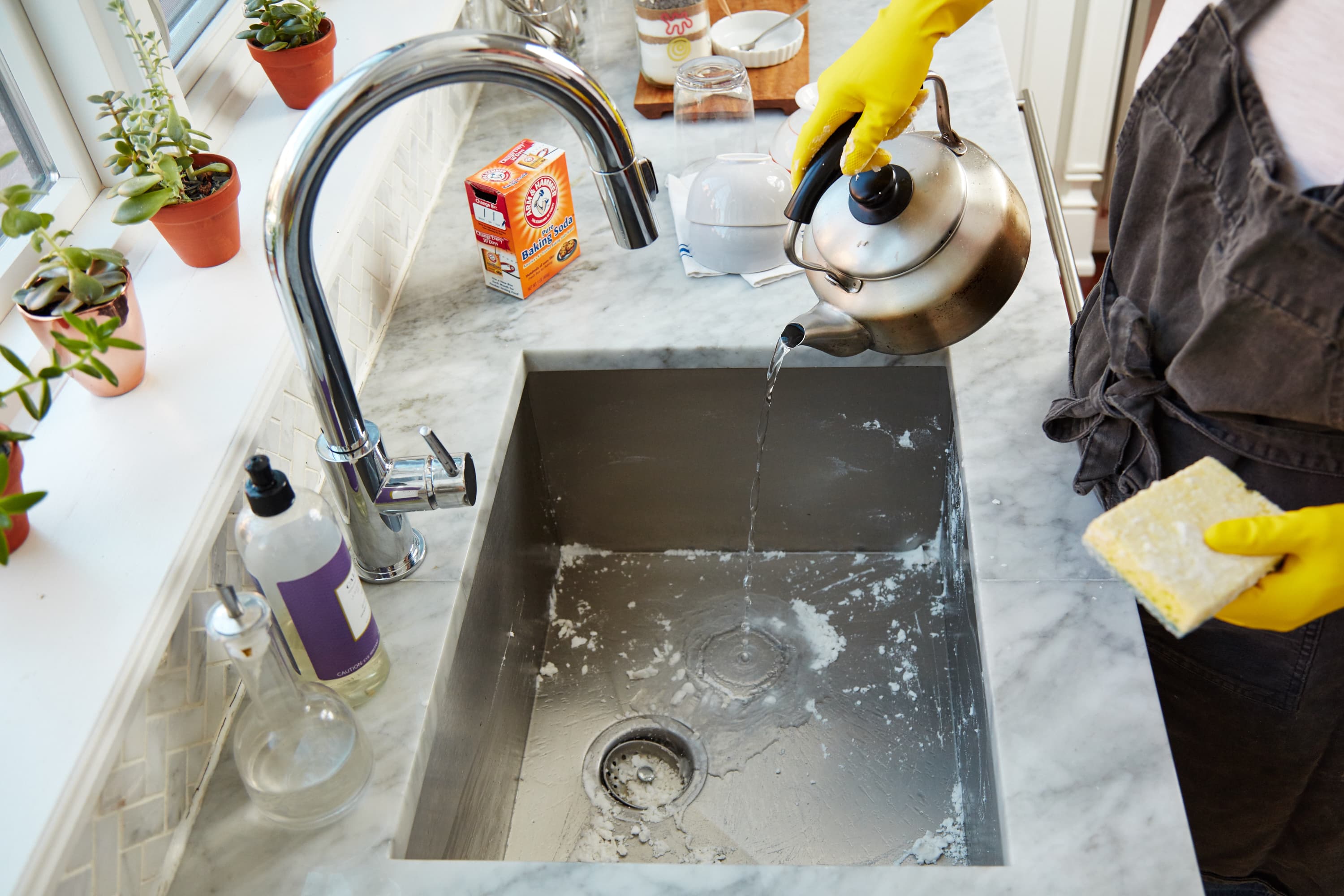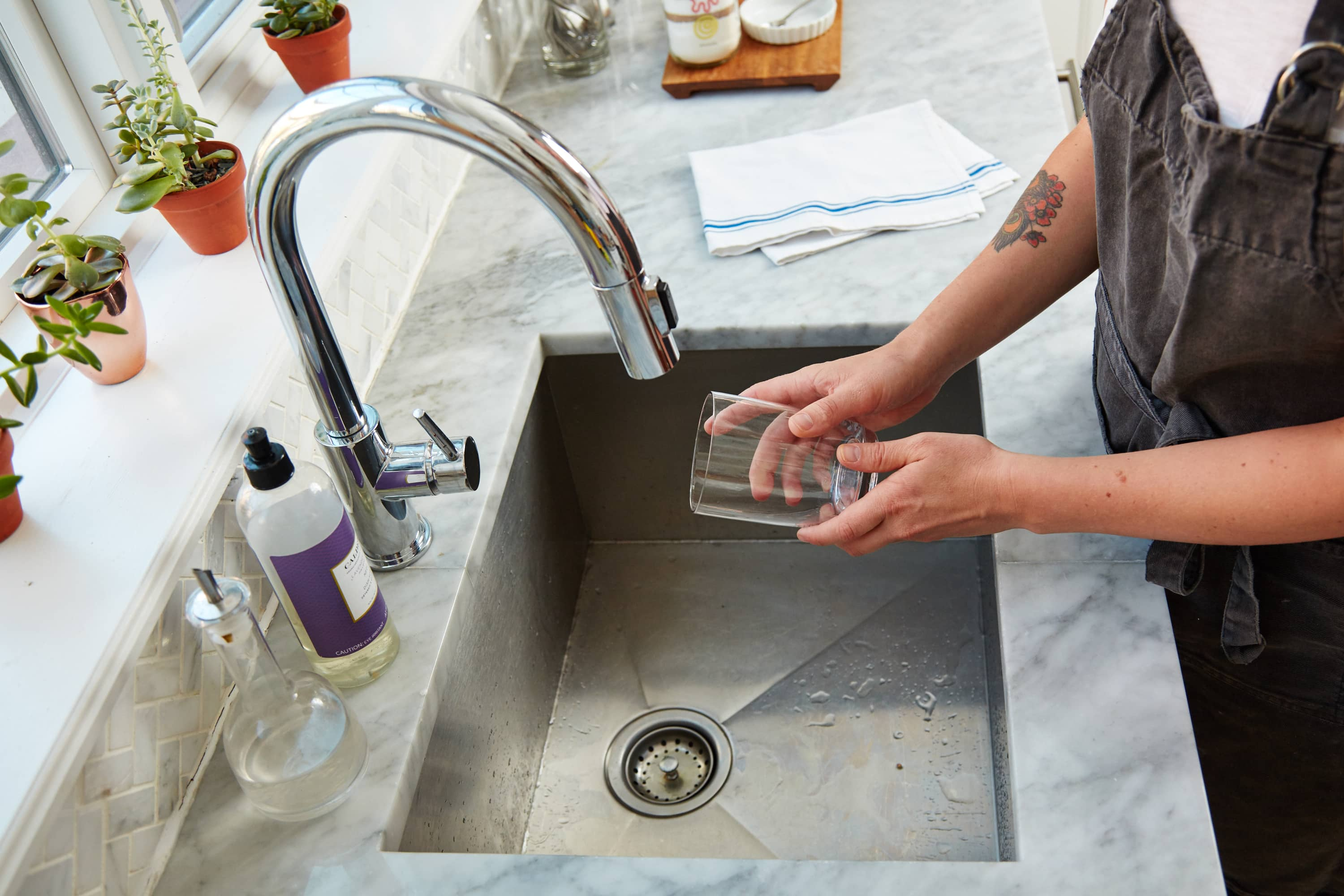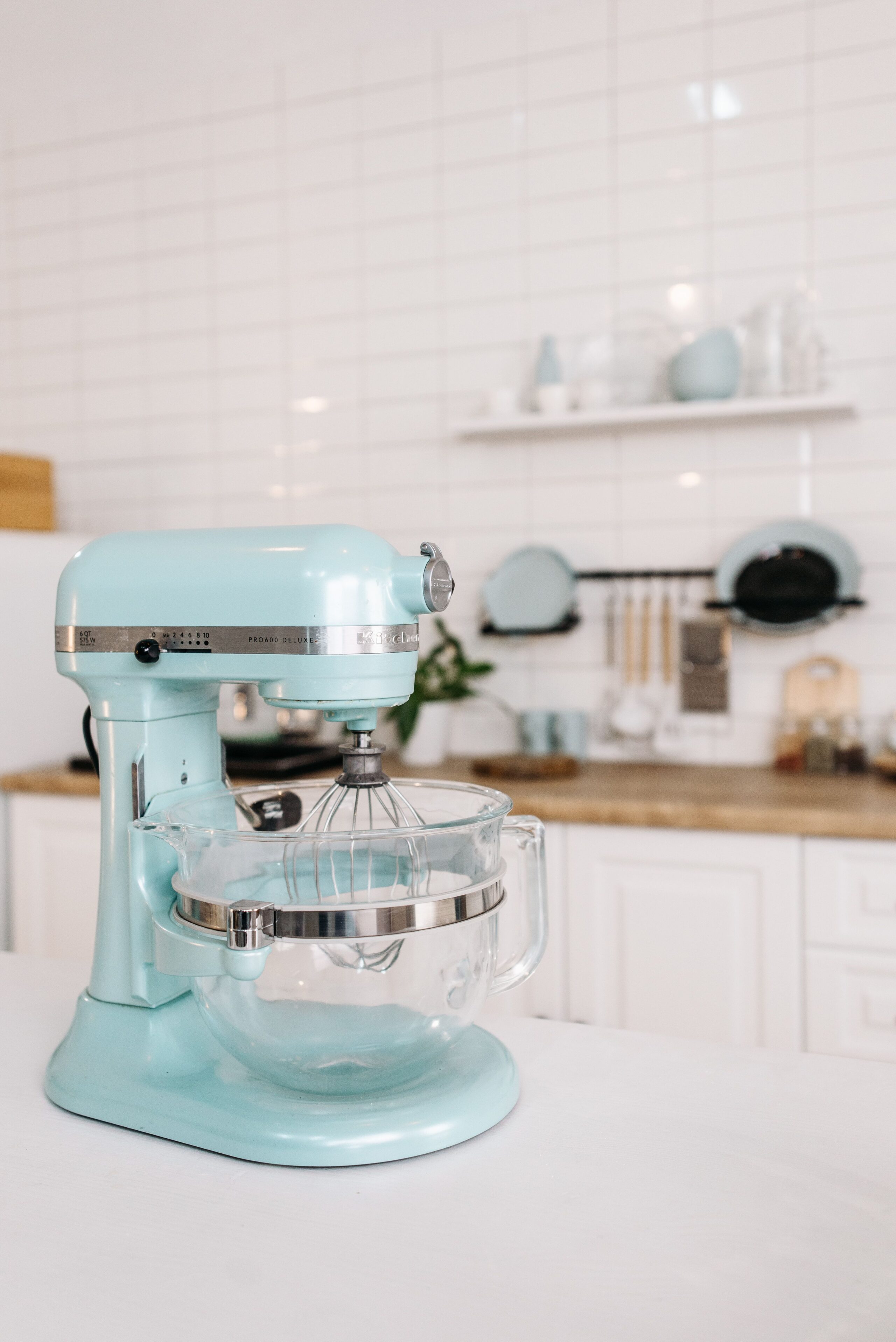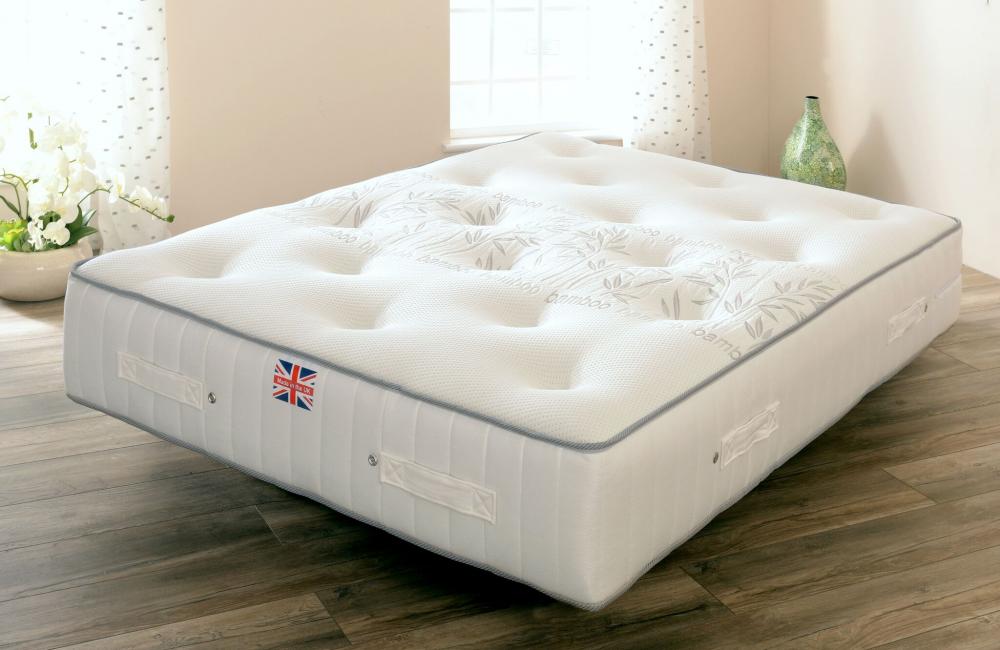Kitchen sink vent smell can be a major nuisance in any household. It not only makes the kitchen area unpleasant, but it can also spread to other parts of the house and cause embarrassment when guests are over. However, in order to effectively get rid of the smell, it's important to understand the root cause. Here are some of the most common causes of kitchen sink vent smell: 1. Clogged Drain - One of the main culprits of kitchen sink vent smell is a clogged drain. Over time, debris such as food particles, grease, and soap scum can build up and cause a foul odor to emanate from the drain. This can also lead to slow drainage and potential backups if not addressed promptly. 2. Poor Ventilation - If your kitchen sink is not properly ventilated, it can trap odors and cause them to linger. This is especially common in older homes where proper ventilation systems may not have been installed. Without proper airflow, the smell from the sink can become concentrated and difficult to get rid of. 3. Bacteria and Mold Growth - Moisture and organic matter in the drain can create the perfect breeding ground for bacteria and mold. These microorganisms can produce a strong, unpleasant smell that can be difficult to eliminate. If left untreated, they can also pose potential health risks.Common Causes of Kitchen Sink Vent Smell
Now that we know the common causes of kitchen sink vent smell, let's explore some ways to get rid of it: 1. Use Baking Soda and Vinegar - This is a tried and tested DIY solution for getting rid of kitchen sink vent smell. Start by pouring a cup of baking soda down the drain, followed by a cup of white vinegar. Let it sit for about 15 minutes, then flush it down with hot water. This will help to break down any buildup and neutralize odors. 2. Try Lemon Juice and Hot Water - Lemon juice is a natural deodorizer and can help to eliminate unpleasant smells from your kitchen sink vent. Simply mix equal parts lemon juice and hot water and pour it down the drain. Let it sit for a few minutes before flushing with hot water. 3. Use a Commercial Drain Cleaner - If the smell persists, you may need to use a stronger solution. There are many commercial drain cleaners available in the market that can effectively break down and remove stubborn buildup. Just make sure to follow the instructions carefully and ventilate the area properly.How to Get Rid of Kitchen Sink Vent Smell
If you prefer to use natural and environmentally-friendly solutions, here are some DIY options to try: 1. Make Your Own Drain Cleaner - You can create your own drain cleaner using ingredients you likely already have in your kitchen. Mix 1/2 cup of salt, 1/2 cup of baking soda, and 1 cup of vinegar and pour it down the drain. Let it sit for at least an hour before flushing it down with hot water. 2. Use Essential Oils - Essential oils not only smell great, but they also have antibacterial properties that can help to eliminate kitchen sink vent smell. Mix a few drops of your favorite essential oil with hot water and pour it down the drain. Some good options include lemon, peppermint, and tea tree oil. 3. Try a Boiling Water Flush - Sometimes, a simple flush with boiling water can do the trick. This can help to dislodge any buildup and flush away bacteria and mold. Just make sure to use caution when handling boiling water.DIY Solutions for Kitchen Sink Vent Smell
If the smell persists even after trying DIY solutions, it may be time to call in the professionals. Here are some options for professional solutions for kitchen sink vent smell: 1. Hydro Jetting - Hydro jetting is a method of cleaning drains using high-pressure water to remove buildup and blockages. This can effectively get rid of any lingering smells and improve the overall function of your kitchen sink. 2. Video Inspection - A video inspection of your kitchen sink vent can help to identify any underlying issues that may be causing the smell. This can include cracked pipes, tree root intrusion, or other blockages that may require professional repair. 3. Chemical Treatments - In some cases, professional plumbers may use chemical treatments to remove stubborn buildup and eliminate odors. These treatments are often stronger and more targeted than commercial drain cleaners, so it's best to leave it to the professionals.Professional Solutions for Kitchen Sink Vent Smell
If you're experiencing a kitchen sink vent smell, it's likely that your vent is blocked. Here are some signs to look out for: 1. Gurgling Sounds - If you hear gurgling sounds coming from your kitchen sink drain, it could be a sign of a blocked vent. This happens when air can't properly flow through the vent, causing the water to drain slowly and creating the gurgling noise. 2. Foul Odors - As we've discussed, a noticeable smell coming from your kitchen sink is a clear indication of a blocked vent. This smell may also spread to other areas of your home. 3. Slow Drainage - If your sink is draining slowly or not at all, this could be a sign of a blockage in the vent. This is because the air can't properly escape, causing the water to drain slower than usual.Signs of a Blocked Kitchen Sink Vent
Prevention is always better than a cure. Here are some tips to help prevent kitchen sink vent smell from occurring in the first place: 1. Regularly Clean Your Sink and Drain - Regularly cleaning your sink and drain can help prevent buildup and bacteria growth. Use a mixture of hot water and dish soap to clean the sink and flush it down the drain. 2. Use a Garbage Disposal Properly - If you have a garbage disposal, make sure to use it properly. Avoid putting large chunks of food or oils down the drain, as this can lead to clogs and unpleasant smells. 3. Flush Your Drain with Hot Water - To keep your drain clear and prevent odors, it's a good idea to flush it with hot water regularly. This helps to break down any buildup and flush it away.How to Prevent Kitchen Sink Vent Smell
Kitchen sink vent smell may not only be unpleasant, but it can also pose potential health risks. Here are some possible health risks associated with this issue: 1. Respiratory Issues - Bacteria and mold growth in the drain can cause respiratory issues, especially for those with respiratory conditions. Breathing in these microorganisms can irritate the lungs and cause breathing difficulties. 2. Allergic Reactions - Some people may be allergic to certain types of bacteria or mold that can grow in the drain. This can lead to allergic reactions such as sneezing, coughing, and skin irritation. 3. Spread of Disease - In extreme cases, certain types of bacteria found in the drain can cause serious illnesses and diseases. This is why it's important to address kitchen sink vent smell as soon as possible.Possible Health Risks of Kitchen Sink Vent Smell
Cleaning your kitchen sink vent is an important part of preventing and getting rid of unpleasant smells. Here's how to clean it: 1. Remove the Cover - Start by removing the cover of the vent, which is usually located on the roof. Use a ladder and make sure to take proper safety precautions. 2. Check for Debris - Once you have access to the vent, check for any debris that may be causing a blockage. Use a flashlight to get a better look and remove any visible obstructions. 3. Use a Garden Hose - Use a garden hose to gently flush out any remaining debris from the vent. Make sure to use a low-pressure setting to avoid causing damage. 4. Clean the Cover - Before putting the cover back on, make sure to clean it thoroughly. Use a mixture of hot water and dish soap, and scrub any dirt or residue off the cover.How to Clean a Kitchen Sink Vent
Lastly, here are some common mistakes that can lead to kitchen sink vent smell: 1. Not Using a Strainer - Not using a strainer in your sink can allow large food particles to go down the drain and cause clogs. Make sure to use a strainer to catch any debris that can lead to unpleasant smells. 2. Pouring Oils and Grease Down the Drain - Oils and grease can solidify and cause clogs in the drain. Instead of pouring them down the sink, dispose of them in a separate container and throw it away in the trash. 3. Neglecting Regular Maintenance - Regularly cleaning your sink and drain can help prevent buildup and eliminate odors. Neglecting this maintenance can lead to bigger and more costly problems in the long run.Common Mistakes That Cause Kitchen Sink Vent Smell
If you're still experiencing kitchen sink vent smell after trying various solutions, it may be time to troubleshoot the issue. Here are some steps to follow: 1. Check Other Drains - If you notice the smell coming from other drains in your home, it may not be a problem with the kitchen sink vent. Check other drains to see if the smell is present. 2. Inspect the Vent Pipe - The vent pipe is the pipe that connects your kitchen sink drain to the roof vent. Inspect this pipe for any cracks or damage that may be causing the smell. 3. Call a Professional - If you're still unable to identify and troubleshoot the issue, it's best to call a professional plumber. They will be able to diagnose the problem and provide a solution. In conclusion, kitchen sink vent smell can be a frustrating and unpleasant problem to deal with. However, by understanding the common causes and implementing the right solutions, you can effectively get rid of the smell and prevent it from recurring. Remember to regularly clean your sink and drain, and address any issues promptly to keep your kitchen smelling fresh and clean.How to Troubleshoot Kitchen Sink Vent Smell
The Importance of Proper Ventilation in Kitchen Design

Addressing the Issue of Kitchen Sink Vent Smell
 When designing a house, the kitchen is often considered the heart of the home. It is where meals are prepared, family gatherings take place, and memories are made. However, a poorly designed kitchen can lead to unpleasant odors that can quickly ruin the overall atmosphere of the space. One common issue that homeowners face is the
kitchen sink vent smell
, which can be a result of inadequate ventilation in the kitchen. In this article, we will discuss the importance of proper ventilation in kitchen design and how it can help address the issue of kitchen sink vent smell.
Ventilation is Key
Proper ventilation is crucial in any kitchen, as it helps to remove excess moisture, smoke, and cooking odors from the space. Without proper ventilation, these elements can linger and create an unpleasant and unhealthy environment. One area that often gets overlooked when it comes to ventilation is the kitchen sink. While most people focus on installing an exhaust fan above the stove, they may not realize that the kitchen sink also needs proper ventilation to prevent odors from building up.
The Role of the Kitchen Sink Vent
The kitchen sink vent, also known as a plumbing vent, is a pipe that runs through the roof of the house and allows air to enter the plumbing system. Its main purpose is to equalize the pressure in the pipes, which helps to prevent gurgling noises and allows for proper drainage. However, if the kitchen sink vent is not functioning correctly, it can cause unpleasant odors to seep back into the kitchen.
Common Causes of Kitchen Sink Vent Smell
There are several reasons why a kitchen sink vent may not be working properly, resulting in unpleasant smells. One common cause is a clogged vent pipe, which can occur due to debris or even small animals getting inside. Another potential cause is a blocked vent cap, which can happen if it becomes covered in leaves or other debris. Additionally, if the vent pipe is not installed at the correct angle, it may not be allowing air to flow freely, leading to odors.
Addressing the Issue
If you are experiencing a
kitchen sink vent smell
, it is essential to address the issue promptly. First, check the vent pipe and cap for any blockages and clean them out if necessary. If the issue persists, it may be best to call a professional plumber to assess and fix the problem. It is also important to ensure that the kitchen has proper ventilation overall, including an exhaust fan and windows that can be opened to allow for fresh air to circulate.
In conclusion, proper ventilation is crucial in kitchen design to prevent unpleasant odors, such as the
kitchen sink vent smell
. Take the time to ensure that your kitchen has adequate ventilation, including a properly functioning kitchen sink vent, to create a comfortable and enjoyable space for cooking and entertaining.
When designing a house, the kitchen is often considered the heart of the home. It is where meals are prepared, family gatherings take place, and memories are made. However, a poorly designed kitchen can lead to unpleasant odors that can quickly ruin the overall atmosphere of the space. One common issue that homeowners face is the
kitchen sink vent smell
, which can be a result of inadequate ventilation in the kitchen. In this article, we will discuss the importance of proper ventilation in kitchen design and how it can help address the issue of kitchen sink vent smell.
Ventilation is Key
Proper ventilation is crucial in any kitchen, as it helps to remove excess moisture, smoke, and cooking odors from the space. Without proper ventilation, these elements can linger and create an unpleasant and unhealthy environment. One area that often gets overlooked when it comes to ventilation is the kitchen sink. While most people focus on installing an exhaust fan above the stove, they may not realize that the kitchen sink also needs proper ventilation to prevent odors from building up.
The Role of the Kitchen Sink Vent
The kitchen sink vent, also known as a plumbing vent, is a pipe that runs through the roof of the house and allows air to enter the plumbing system. Its main purpose is to equalize the pressure in the pipes, which helps to prevent gurgling noises and allows for proper drainage. However, if the kitchen sink vent is not functioning correctly, it can cause unpleasant odors to seep back into the kitchen.
Common Causes of Kitchen Sink Vent Smell
There are several reasons why a kitchen sink vent may not be working properly, resulting in unpleasant smells. One common cause is a clogged vent pipe, which can occur due to debris or even small animals getting inside. Another potential cause is a blocked vent cap, which can happen if it becomes covered in leaves or other debris. Additionally, if the vent pipe is not installed at the correct angle, it may not be allowing air to flow freely, leading to odors.
Addressing the Issue
If you are experiencing a
kitchen sink vent smell
, it is essential to address the issue promptly. First, check the vent pipe and cap for any blockages and clean them out if necessary. If the issue persists, it may be best to call a professional plumber to assess and fix the problem. It is also important to ensure that the kitchen has proper ventilation overall, including an exhaust fan and windows that can be opened to allow for fresh air to circulate.
In conclusion, proper ventilation is crucial in kitchen design to prevent unpleasant odors, such as the
kitchen sink vent smell
. Take the time to ensure that your kitchen has adequate ventilation, including a properly functioning kitchen sink vent, to create a comfortable and enjoyable space for cooking and entertaining.


















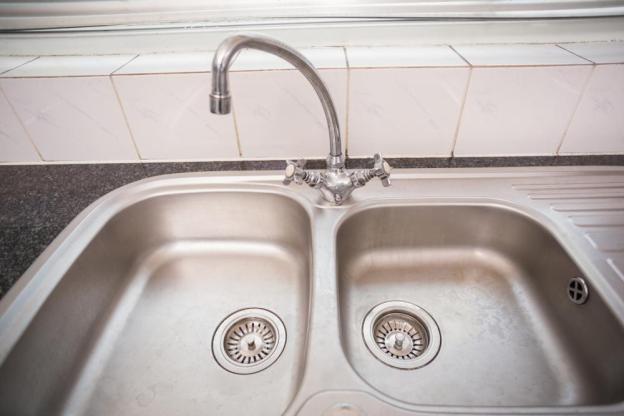
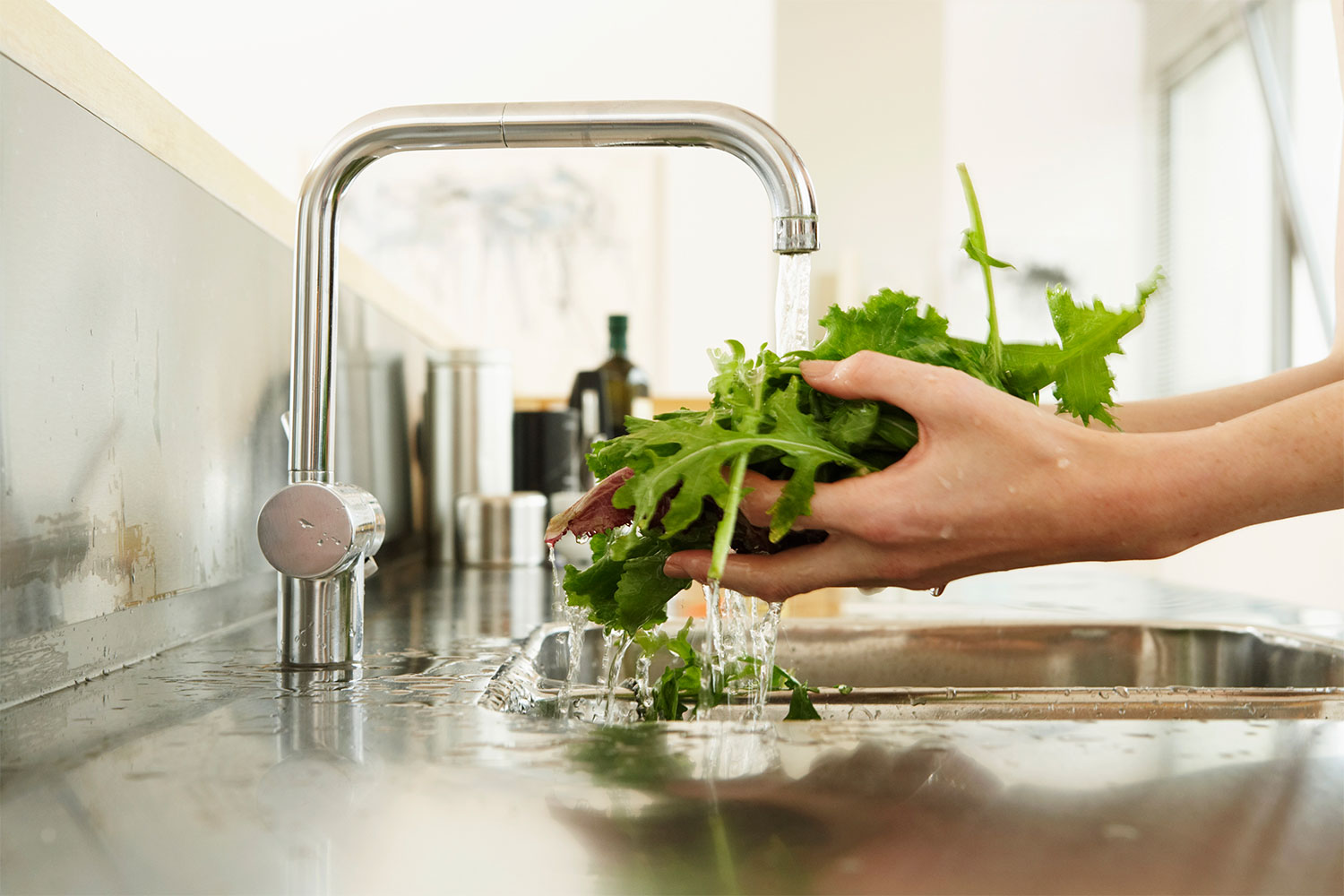








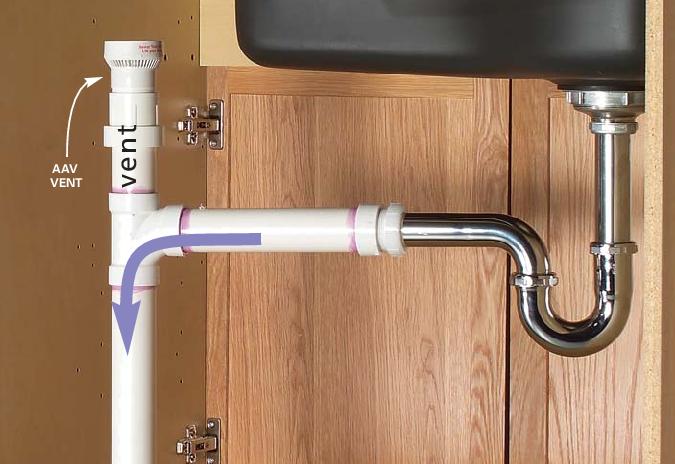


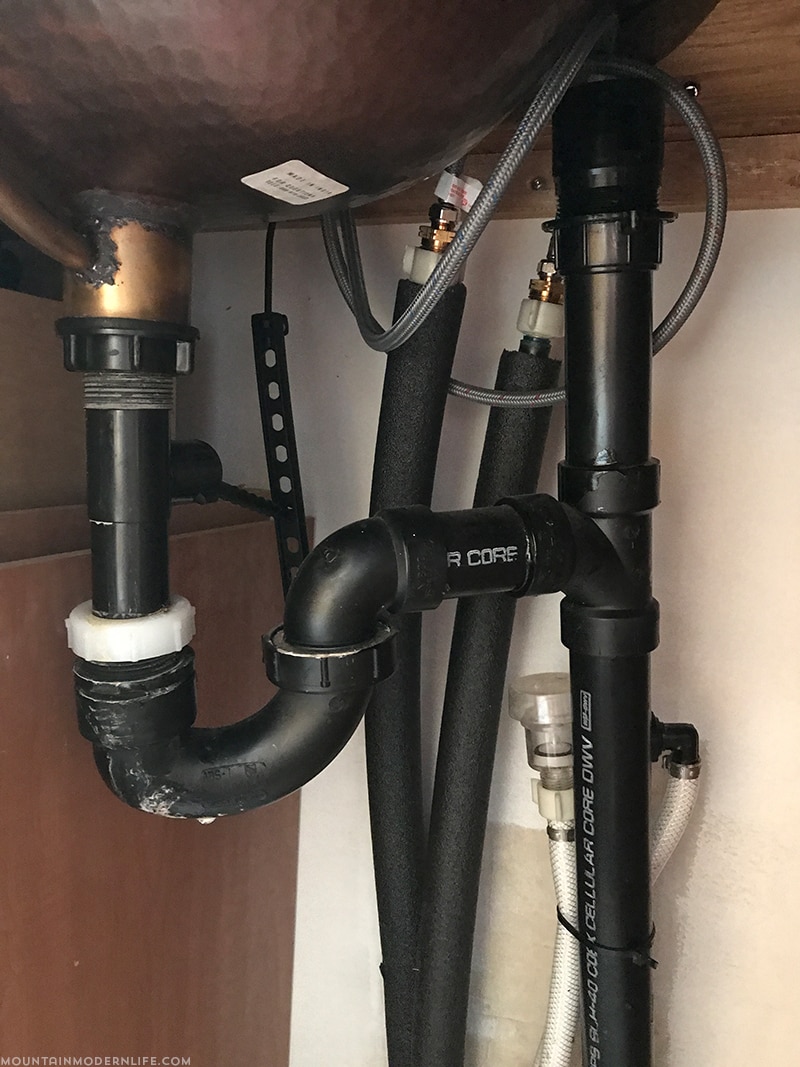


:max_bytes(150000):strip_icc()/sink-pipe-under-wash-basin-119001607-6f28aec4c66944efb7a9a38cb622ab8b.jpg)







